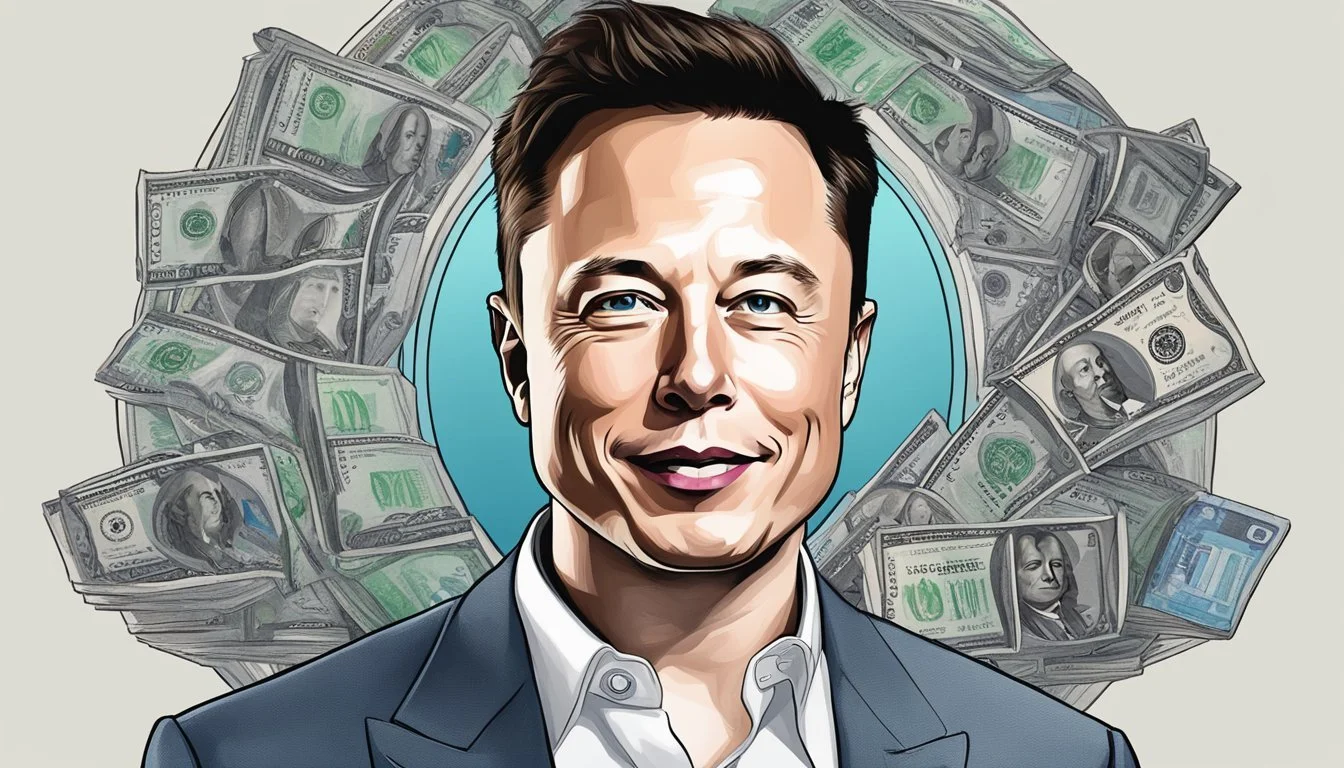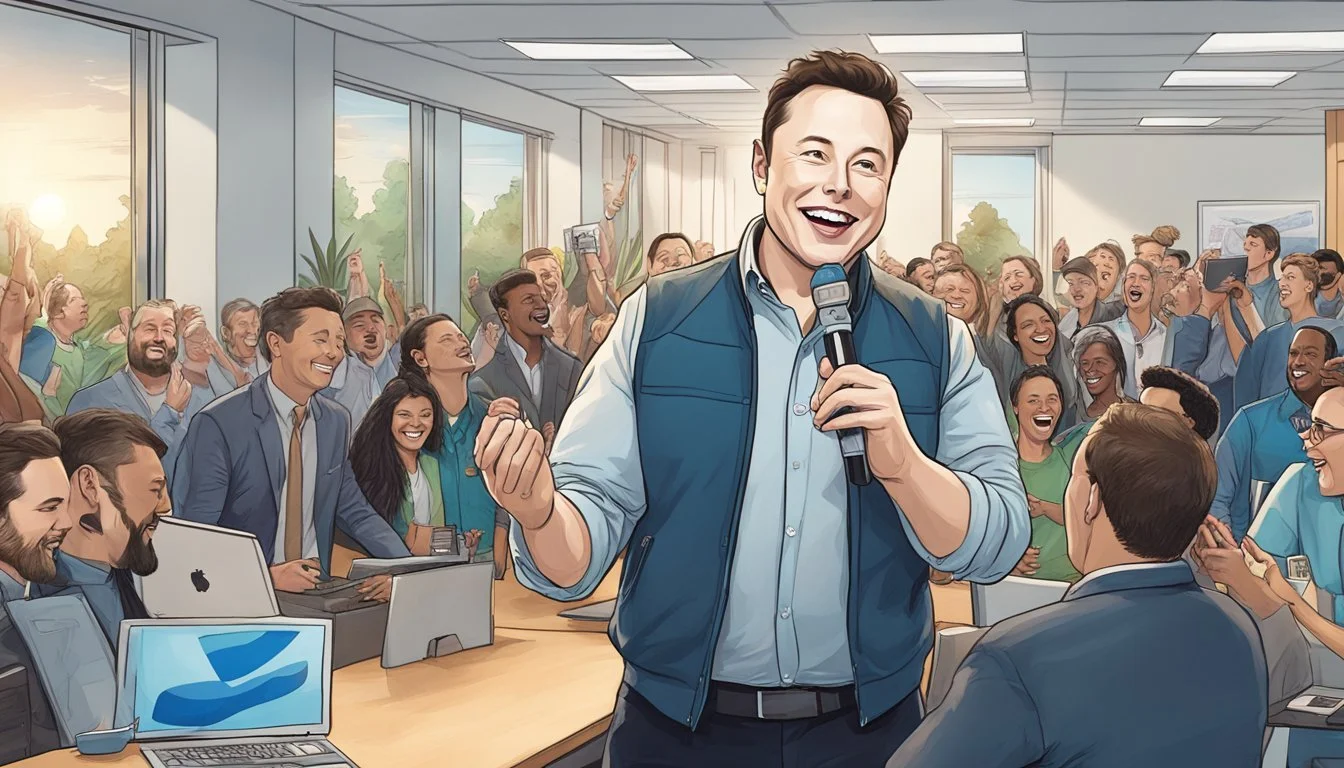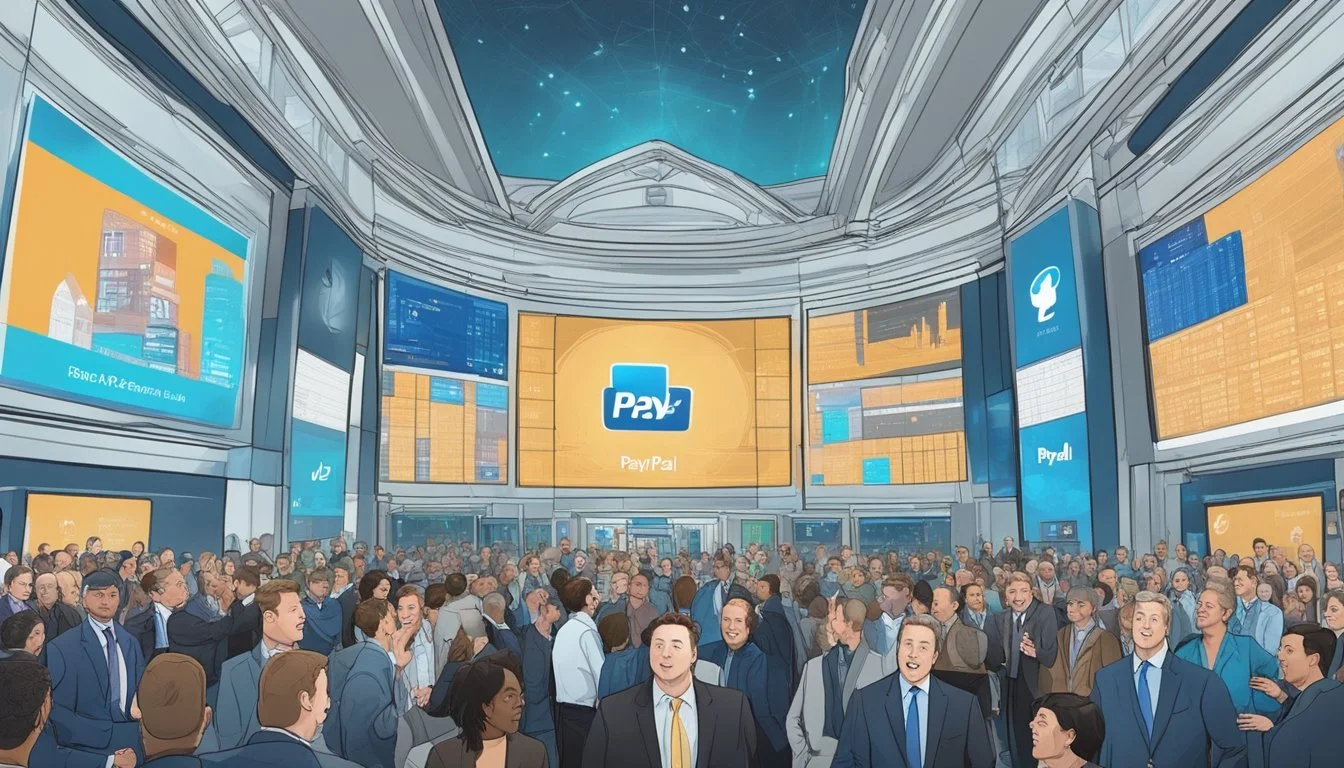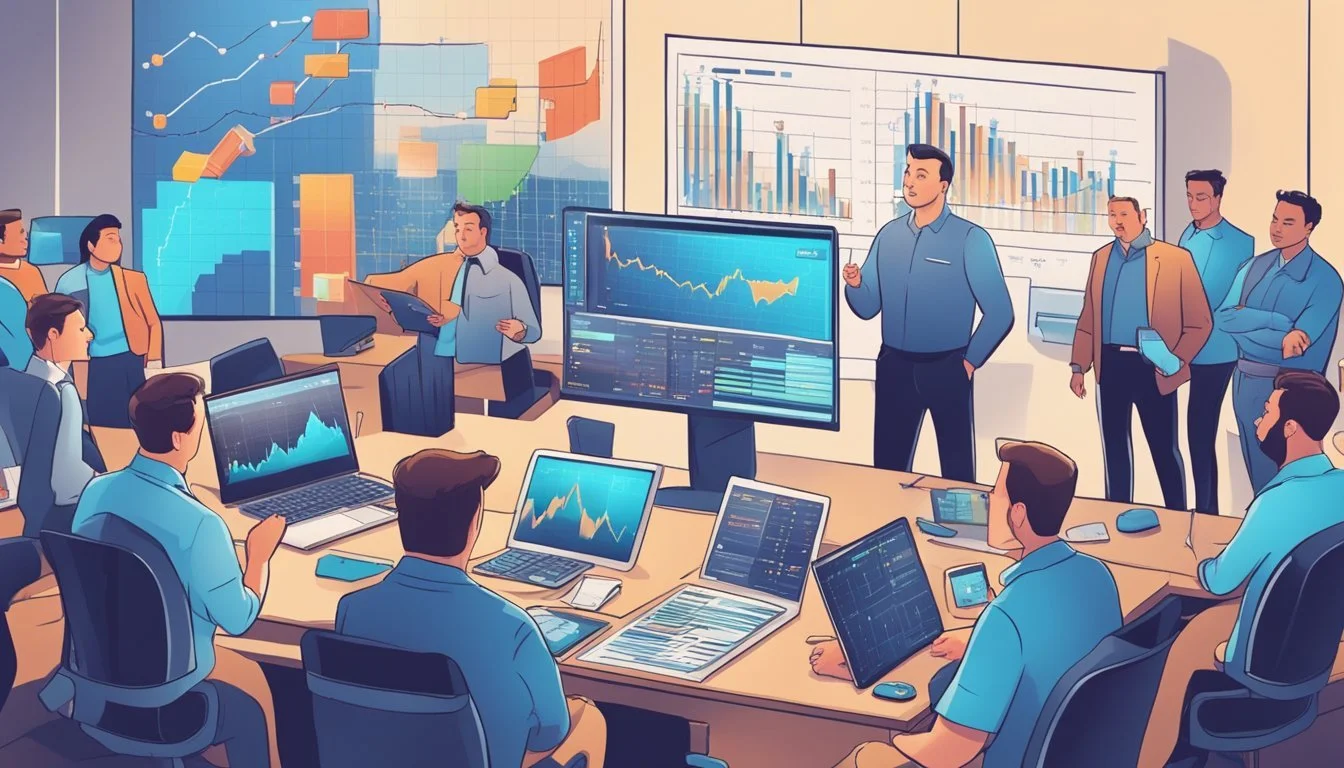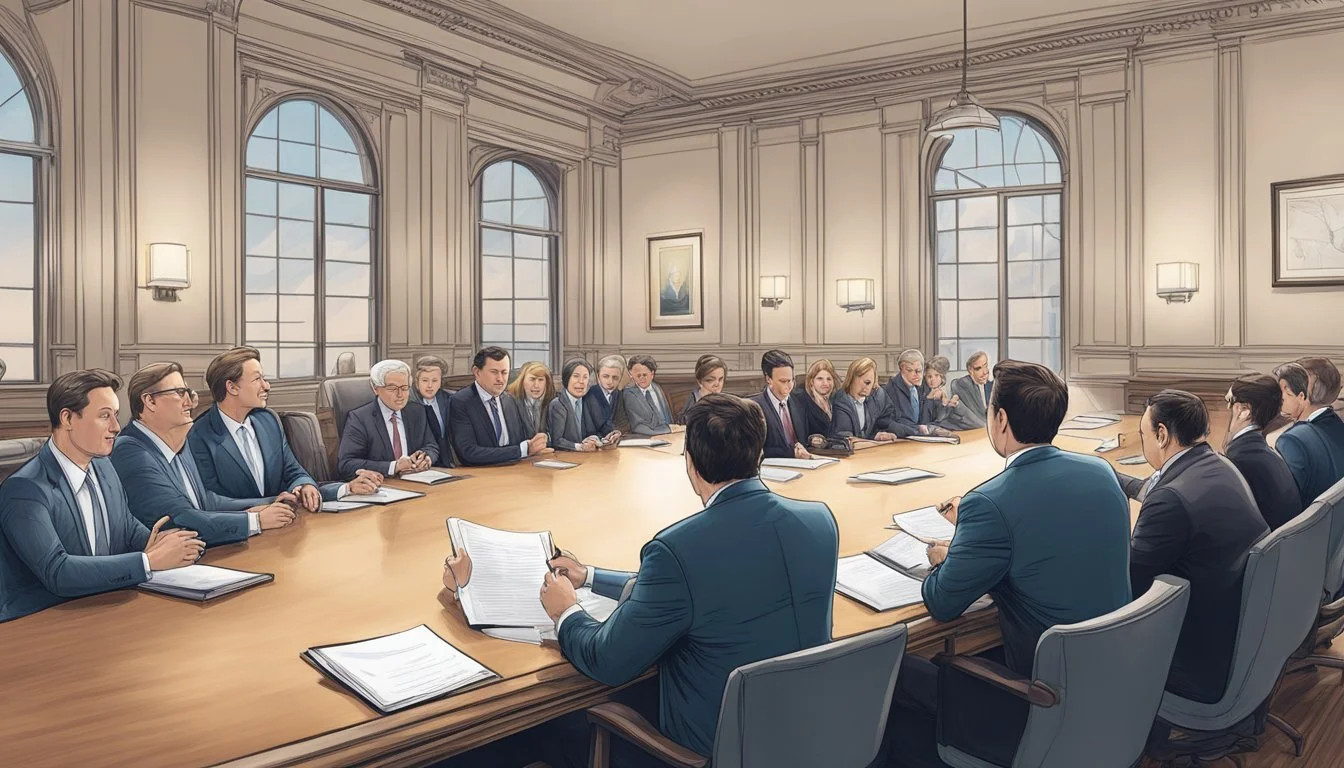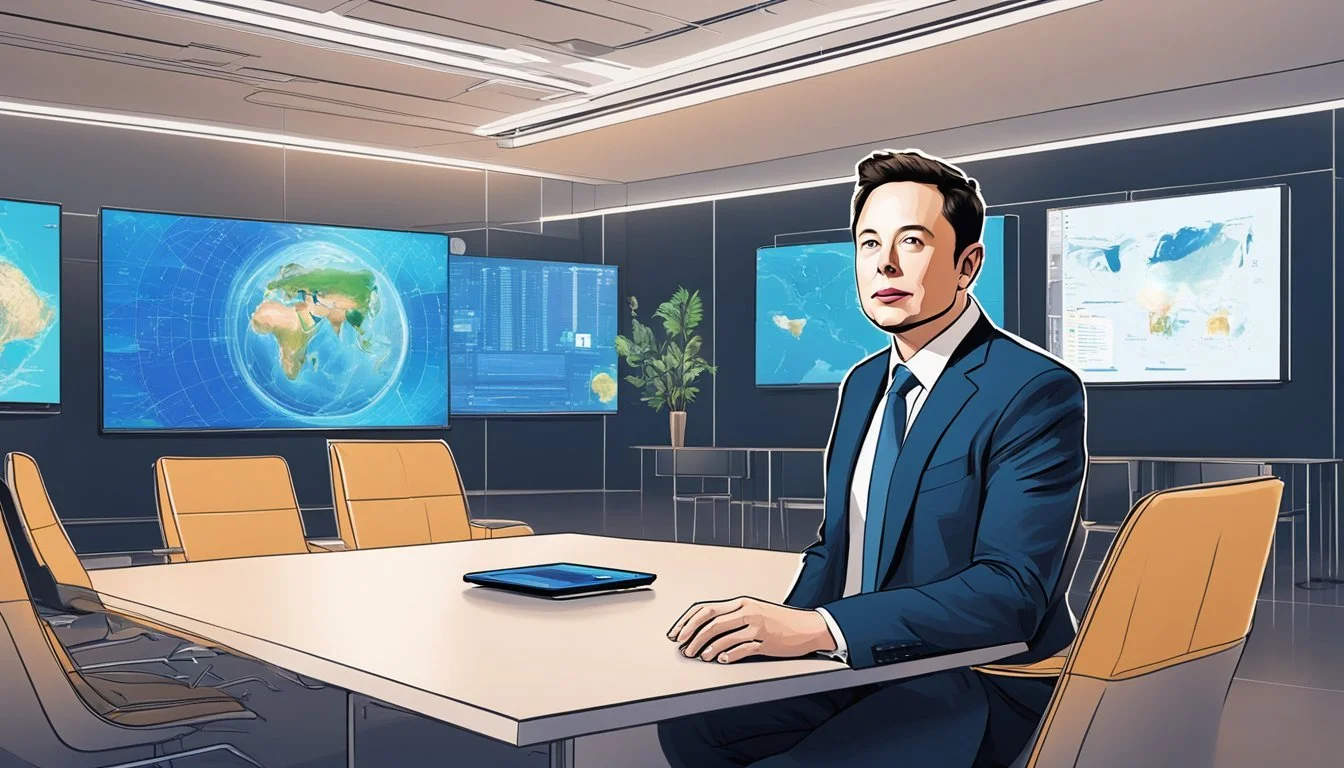How Much Did Elon Musk Sell PayPal For? Shocking $1.5 Billion Deal Revealed!
Elon Musk's role in PayPal's creation and subsequent sale is a pivotal chapter in his entrepreneurial journey. The online payment platform, born from the merger of Musk's X.com and Confinity in 2000, quickly gained traction in the e-commerce world.
In 2002, eBay acquired PayPal for $1.5 billion, with Musk receiving approximately $175-180 million from the deal as the largest shareholder. This windfall proved instrumental in funding Musk's future ventures, including SpaceX and Tesla.
The sale of PayPal to eBay marked a significant milestone in the evolution of online payments. It demonstrated the value of secure, user-friendly digital transaction systems and set the stage for further innovations in financial technology. Musk's involvement in PayPal's development and sale laid the foundation for his later successes and cemented his reputation as a visionary entrepreneur.
Elon Musk's Early Ventures
Elon Musk's entrepreneurial journey began in 1995 with Zip2, a web software company he co-founded with his brother Kimbal. Zip2 provided online city guides and maps for newspapers.
The venture attracted investors and grew rapidly. In 1999, Compaq acquired Zip2 for nearly $300 million. Musk received $22 million from the sale as a 7% shareholder.
With his newfound wealth, Musk co-founded X.com in 1999. This online financial services company focused on email payments and banking.
X.com merged with Confinity in 2000, leading to the creation of PayPal. Musk became the largest shareholder of the combined company.
As CEO, Musk steered PayPal's growth and development. The company went public in 2002 and was later acquired by eBay for $1.5 billion.
Musk owned 11.7% of PayPal's shares at the time of the eBay acquisition. His stake netted him approximately $165 million from the sale.
These early successes provided Musk with the capital and experience to pursue his later ventures in space exploration and electric vehicles.
Creation of X.com and Confinity
Elon Musk and a group of entrepreneurs laid the foundations for what would eventually become PayPal through two separate ventures: X.com and Confinity. These companies pioneered online banking and digital payment solutions in the late 1990s.
Founding X.com
Elon Musk co-founded X.com in 1999 in Palo Alto, California. The company aimed to revolutionize online banking services. Musk invested heavily in X.com, leaving himself with only $4 million after the initial funding.
X.com offered a range of financial services, including online checking accounts and mutual funds. The company's innovative approach attracted significant attention in the rapidly evolving digital finance landscape.
PayPal's Predecessor: Confinity
Confinity, founded in 1998, focused on developing secure online payment systems. The company created a digital wallet service called PayPal, which quickly gained popularity among eBay sellers.
PayPal allowed users to send and receive money electronically, addressing a growing need in the e-commerce sector. Confinity's emphasis on security and user-friendly design set it apart from competitors.
In 2000, X.com and Confinity merged, recognizing the potential for synergy between their services. This merger laid the groundwork for PayPal's future success and eventual acquisition by eBay.
The PayPal Merger
The PayPal merger with eBay in 2002 marked a pivotal moment for Elon Musk and other early investors. This deal transformed the online payment landscape and yielded significant financial returns.
Merger Decision
X.com, Musk's online banking startup, merged with Confinity in 2000 to form PayPal. The combined entity quickly gained traction in the e-commerce space. By 2002, PayPal had become the preferred payment method for many eBay users.
eBay recognized PayPal's strategic value and made a $1.5 billion acquisition offer. The board and investors, including Musk, agreed to the deal. This decision capitalized on PayPal's rapid growth and market position.
Strategic Benefits
The merger provided immediate benefits for both companies. eBay gained a trusted payment system, enhancing its e-commerce platform. PayPal secured a vast user base and resources for expansion.
For investors, the deal offered substantial returns. Musk, as the largest shareholder with an 11.7% stake, received between $175 million and $180 million from the sale.
The merger also freed up capital and talent. Many PayPal executives, including Musk, went on to launch successful ventures in various industries. This "PayPal Mafia" phenomenon highlights the deal's long-term impact on innovation and entrepreneurship.
Sale to eBay and Financial Details
Elon Musk's involvement with PayPal culminated in a lucrative deal with eBay in 2002. This transaction marked a significant milestone in Musk's entrepreneurial journey and resulted in substantial financial gains.
Negotiation Process
eBay expressed strong interest in acquiring PayPal to enhance its online payment capabilities. The negotiation process involved multiple rounds of discussions between PayPal's leadership team, including Musk, and eBay's executives. Both parties recognized the potential synergies of combining their platforms.
Key points of negotiation included:
Valuation of PayPal's business
Integration plans for PayPal within eBay's ecosystem
Retention of key PayPal personnel
The talks progressed swiftly, with both sides eager to finalize the deal.
Sale Price
eBay ultimately agreed to purchase PayPal for $1.5 billion in a stock deal. This acquisition price represented a significant premium over PayPal's market value at the time.
Elon Musk, as the largest shareholder, benefited considerably from the sale:
Musk held 11.7% of PayPal shares
His stake amounted to 7,109,989 shares
Estimated personal gain: $175-180 million
This windfall provided Musk with substantial capital to invest in future ventures, including SpaceX and Tesla. The sale to eBay proved to be a pivotal moment in Musk's career, cementing his status as a successful tech entrepreneur and providing the financial foundation for his subsequent ambitious projects.
Elon Musk's Later Ventures
After selling PayPal, Elon Musk embarked on a series of ambitious projects spanning space exploration, electric vehicles, renewable energy, neurotechnology, and infrastructure. These ventures aimed to push the boundaries of innovation and tackle global challenges.
SpaceX and the Road to Space Exploration
SpaceX, founded in 2002, revolutionized the aerospace industry. The company developed reusable rockets, significantly reducing launch costs. Its Falcon 9 rocket and Dragon spacecraft have completed numerous missions to the International Space Station.
SpaceX's Starship project aims to enable interplanetary travel and colonization of Mars. The company has also launched Starlink, a satellite constellation providing global broadband internet coverage.
Tesla Motors and the Electric Transportation Revolution
Tesla Motors, co-founded by Musk in 2003, spearheaded the electric vehicle revolution. The company's first production car, the Roadster, launched in 2008. Tesla's subsequent models - Model S, Model 3, Model X, and Model Y - have gained widespread popularity.
Tesla's innovations extend beyond vehicles. The company developed advanced battery technology and autonomous driving capabilities. Its Gigafactories produce electric vehicles, battery packs, and solar panels at scale.
SolarCity, Renewable Energy, and Engineering
Musk co-founded SolarCity in 2006, which Tesla acquired in 2016. The company focuses on solar energy services, offering solar panel installation and energy storage solutions.
SolarCity's integration with Tesla created a vertically integrated sustainable energy company. This merger combined solar power generation, energy storage, and electric vehicles under one roof.
The company's Solar Roof tiles blend seamlessly with traditional roofing materials, making solar power more aesthetically appealing for homeowners.
Neuralink and Advances in Artificial Intelligence
Neuralink, founded in 2016, aims to develop brain-computer interfaces. The company's technology could potentially treat neurological conditions and enhance human cognitive abilities.
Neuralink's initial focus is on medical applications, such as helping paralyzed individuals regain motor function. Long-term goals include enabling direct communication between humans and artificial intelligence.
The company has demonstrated its technology in animal trials and is working towards human trials.
The Boring Company and Infrastructure Innovation
Founded in 2016, The Boring Company tackles traffic congestion through underground transportation systems. The company develops tunnel-boring machines to create networks of high-speed underground tunnels.
Its first operational tunnel opened in Las Vegas in 2021, transporting passengers in Tesla vehicles. The Boring Company aims to expand this concept to other cities, potentially revolutionizing urban transportation.
The company also briefly sold quirky merchandise, including flamethrowers, to raise funds and generate publicity for its projects.
Elon Musk's Influence on Digital Payments
Elon Musk played a significant role in shaping the landscape of digital payments through his involvement with PayPal. As a co-founder of X.com, which later became PayPal, Musk helped pioneer secure online payment systems.
PayPal revolutionized e-commerce by offering users a convenient and cost-effective way to transfer money electronically. This innovation paved the way for widespread adoption of digital payments across the globe.
Musk's vision for seamless online transactions improved user experience in e-commerce. PayPal's user-friendly interface and robust security measures instilled confidence in consumers, encouraging broader acceptance of digital payment methods.
The success of PayPal under Musk's leadership sparked further innovation in the fintech sector. It inspired the development of numerous other digital payment platforms and mobile wallets that are widely used today.
Even after leaving PayPal, Musk's influence on digital payments continued. His work laid the foundation for future advancements in cryptocurrency and blockchain technology, which are now reshaping the financial landscape.
Musk's contributions to PayPal helped establish trust in online transactions. This trust was crucial for the growth of e-commerce and the broader digital economy, enabling businesses to flourish in the online marketplace.
Market Impact and Economic Significance
PayPal's acquisition by eBay had far-reaching effects on shareholders, market dynamics, and entrepreneurial opportunities. The $1.5 billion deal created substantial value and set the stage for future innovation in digital payments and e-commerce.
Impact on Shareholders and Market Value
The PayPal acquisition delivered significant returns to shareholders. Elon Musk, as a major shareholder, reportedly received around $165 million from the sale. This windfall provided him with capital for future ventures.
eBay's stock price rose following the announcement, reflecting investor optimism about the deal's potential. The acquisition valued PayPal at a premium to its previous market price, rewarding early investors and employees.
PayPal's integration boosted eBay's competitive position in online payments. The combined entity's market value increased as synergies between the platforms became apparent.
Influence on Entrepreneurial Opportunities
The PayPal sale sparked a wave of innovation in fintech and e-commerce. Many PayPal employees, flush with cash from the acquisition, went on to start or invest in new companies.
This group, dubbed the "PayPal Mafia," included Elon Musk, Peter Thiel, and Reid Hoffman. They founded or backed companies like Tesla, SpaceX, LinkedIn, and Palantir Technologies.
The success of these ventures created a ripple effect in Silicon Valley. It demonstrated the potential for online payment and e-commerce startups to achieve major exits.
The PayPal acquisition also highlighted the value of disruptive financial technologies. This encouraged more investment in fintech startups and accelerated innovation in digital payments.
Elon Musk's Persona and Wealth
Elon Musk's public image and financial status have garnered significant attention. His net worth has reached unprecedented levels, making him the wealthiest individual globally.
Public Perception and Media Portrayal
Elon Musk is often portrayed as a visionary entrepreneur and innovator. His ventures in electric vehicles, space exploration, and renewable energy have contributed to his reputation as a forward-thinking leader.
Media coverage of Musk tends to be polarizing. Some praise his ambitious goals and technological advancements, while others criticize his management style and controversial statements.
Musk's active presence on social media, particularly Twitter, has shaped public opinion. His tweets have influenced stock prices and sparked debates on various topics.
Net Worth and Wealth Comparisons
As of December 2024, Elon Musk's net worth is estimated at $486 billion according to the Bloomberg Billionaires Index. Forbes places his wealth slightly lower at $464 billion.
Musk's wealth primarily stems from his ownership stakes in Tesla and SpaceX. He became the first person to surpass a $300 billion net worth in November 2021.
His financial status far exceeds that of other billionaires. For comparison:
Jeff Bezos (Amazon founder): $170 billion
Bill Gates (Microsoft co-founder): $130 billion
Mark Zuckerberg (Meta CEO): $115 billion
Musk's wealth fluctuates significantly due to the volatility of Tesla's stock price. Despite this, he has maintained his position as the Richest Person in the World for several years.
Legal and Tax Considerations
Elon Musk's sale of PayPal in 2002 came with significant legal and tax implications. As a major shareholder, Musk was subject to federal capital gains taxes on his proceeds from the sale.
The tax code at the time applied a favorable capital gains rate of approximately 15% to Musk's earnings. Based on his reported $165 million share of the PayPal sale, Musk likely paid around $22 million in taxes.
This tax treatment highlights the importance of understanding capital gains rules for large transactions. Proper tax planning can have a substantial impact on the net proceeds from such deals.
From a legal standpoint, the sale would have involved extensive contracts and agreements. These likely covered areas such as:
Transfer of ownership and assets
Retention of key employees
Non-compete clauses
Representations and warranties
Securities regulations also played a role, as PayPal was a publicly traded company at the time of the acquisition. Compliance with SEC rules on insider transactions and public disclosures was crucial.
Elon Musk's Influence and Legacy
Elon Musk's impact extends far beyond the PayPal sale, shaping multiple industries and inspiring a new generation of entrepreneurs. His ambitious vision and relentless drive have positioned him as a leading innovator of our time.
Comparison with Other Tech Giants
Musk's influence rivals that of other prominent tech entrepreneurs like Mark Zuckerberg and Bill Gates. While Zuckerberg revolutionized social media and Gates transformed personal computing, Musk's reach spans multiple sectors. His ventures in electric vehicles, space exploration, and sustainable energy set him apart.
Unlike many tech giants who focus on software, Musk tackles complex hardware challenges. This approach has led to groundbreaking innovations in industries long considered stagnant.
Musk's public persona also differs from his peers. He actively engages with millions of followers on social media, often sharing candid thoughts and future plans directly with the public.
Contribution to Technology and Society
Musk's companies have pushed technological boundaries and sparked societal change. Tesla accelerated the adoption of electric vehicles, forcing traditional automakers to invest heavily in EV technology. This shift is contributing significantly to reducing carbon emissions.
SpaceX has revitalized interest in space exploration and drastically lowered the cost of orbital launches. The company's reusable rocket technology has opened new possibilities for space travel and satellite deployment.
Musk's advocacy for sustainable energy has influenced global conversations on climate change. His work on solar power and energy storage solutions at Tesla has demonstrated the viability of renewable energy on a large scale.
His Neuralink project aims to merge human cognition with artificial intelligence, potentially revolutionizing how we interact with technology and treat neurological conditions.
Contemporary Relevance and Future Outlook
Elon Musk's success with PayPal laid the foundation for his current ventures and future innovations. His entrepreneurial spirit and technological vision continue to shape multiple industries.
Analysis of Current Ventures
SpaceX has revolutionized space travel with reusable rockets and ambitious plans for Mars colonization. The company has secured numerous NASA contracts and launched thousands of Starlink satellites for global internet coverage.
Tesla leads the electric vehicle market, pushing the boundaries of autonomous driving technology. The company's focus on sustainable energy extends to solar panels and energy storage solutions.
Musk's acquisition of Twitter for $44 billion in 2022 marked his entry into social media. He implemented significant changes to the platform's content moderation policies and user verification system.
Speculations on Future Innovations
Musk's Neuralink aims to develop brain-computer interfaces, potentially transforming healthcare and human cognitive abilities. The company has made progress in animal trials and plans human trials in the near future.
The Boring Company continues to work on underground transportation systems, with potential applications for reducing urban congestion. Musk has also expressed interest in developing supersonic electric aircraft.
His involvement in artificial intelligence research through OpenAI (though he has since left the board) and his statements about the potential risks of AI suggest ongoing interest in this field. Musk's high IQ and innovative approach may lead to breakthroughs in previously unexplored areas of technology.

